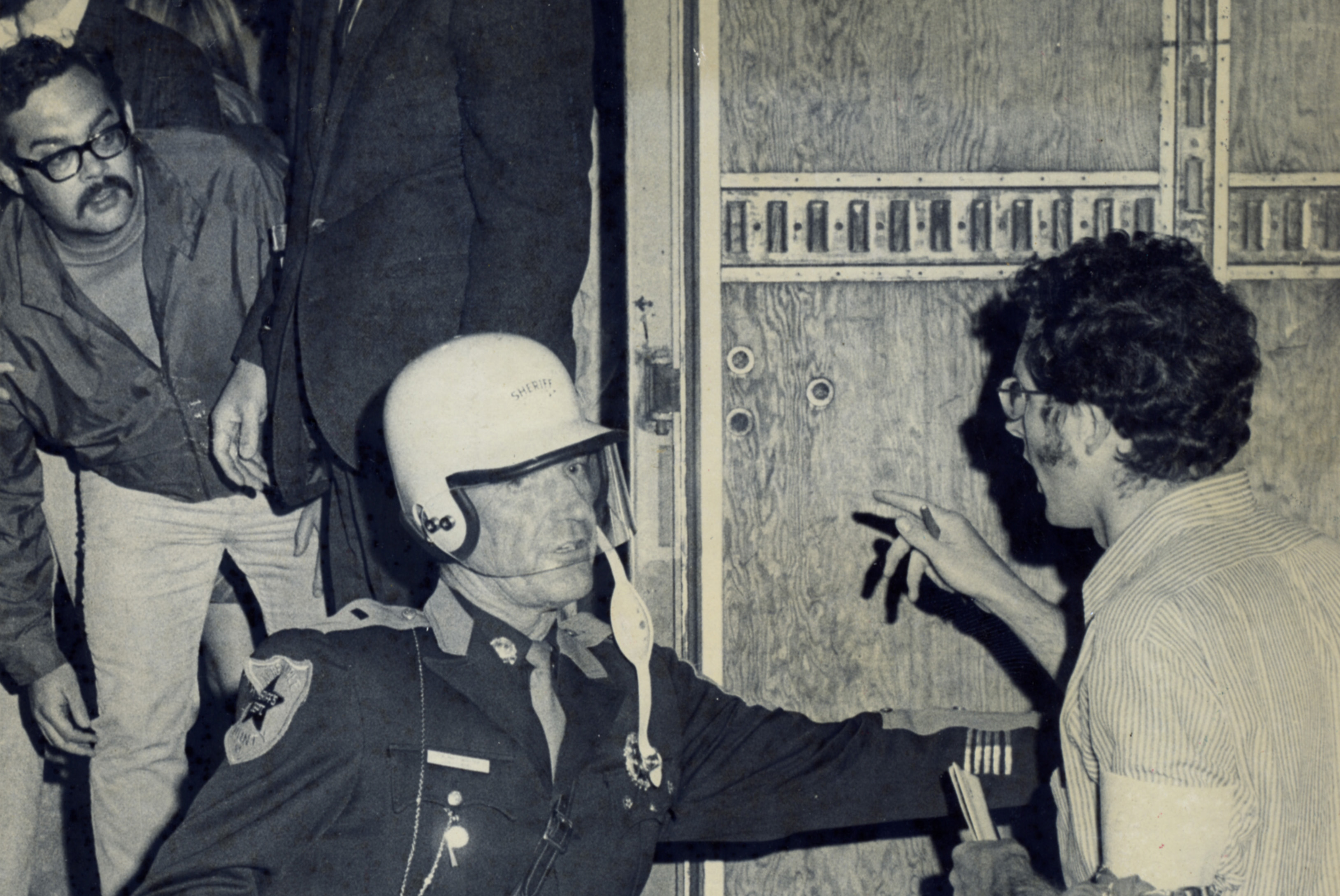Gerald MacFarlane entered UVA Law in 1967. At the time, active enrollment at a university allowed men to defer the draft. That quickly changed in 1968 when the law school and other institutions of higher learning lost their deferment. Half of MacFarlane’s class did not return his second year, he says. It was a unique moment to be a law student. With the class size reduced, one-on-one interactions with professors and peers became the norm.
Law school life was distinct from that of Grounds. The rigors of coursework kept MacFarlane and others in the library, which never closed. There were no joint classes or other reasons to be involved in undergraduate affairs. “You only went over there if you had business or you were lost.” College protests against Vietnam changed that dynamic—at least for a short time. Whether undergraduate or professional student, people were horrified when National Guardsmen fired into the crowd at Kent State on May 4th and killed four students. It was a unifying moment regardless of your stance on the war.
The legal marshals came together in response to the reaction on Grounds, which law students were concerned might mimic Kent State. MacFarlane thinks he became involved with the marshals from his time serving as counsel on an honor code trial, but he does not remember the exact details. Unlike other legal marshals, he was not involved in Legal Aid. MacFarlane was also a little older than the average law student, and he had a family. He and his wife lived away from campus near Martha Jefferson Hospital.
MacFarlane remembers hearing “buzz” about William Kunstler and Jerry Rubin’s upcoming speeches at University Hall, but he did not participate in most of the May Days events. On the evening of May 8th, MacFarlane left his house around 10:00 pm and rode his motorcycle to the law school. He grabbed his green marshal armband (which he wore on his left arm) and headed over to Grounds. He remembers seeing a “big crowd of students” when he arrived. It was loud and people were shouting. His job that evening was “crowd control.”
MacFarlane says he was on the Rotunda side of the stone wall when police started charging down Rugby Road. It was an intimidating sight. MacFarlane felt safe until police came over the wall. He thinks he was on the steps of the Rotunda at the time of his arrest.
MacFarlane informed the officer he was a legal marshal, but it made no difference. Away he went into the Mayflower van. In fact, MacFarlane was the first arrested. He was not alone for long and an “endless stream” of arrestees followed him. MacFarlane remembers that the inside of the van was “all wood” and that there were no seats. “You sat on the floor trying to hold on,” he says. MacFarlane describes the atmosphere inside the van as one of confusion and chaos. “Nobody had any idea what was going on or why they were there.”
Gerald MacFarlane (left) inside Mayflower van. Legal marshal Neil McBride ('70) attempts to bargain with a police officer.
When the van arrived at the police station, MacFarlane was put in a cell and not released until morning. Charles Whitebread, who MacFarlane remembers as a young dynamic UVA Law professor, arrived the next day to help. Associate Dean Lane Kneedler was also present. MacFarlane was concerned that his arrest record would impact his job at the Securities Exchange Commission. The charges were later expunged, and MacFarlane did not mention the incident on his employment applications. He moved to northern Virginia after graduation and started his job in Washington, DC. “I never heard anything after that,” he says.
Gerald MacFarlane recalls his arrest on May 9, 1970.
MacFarlane was not concerned about end-of-semester exams as he had already passed the bar. “I was a free bird at that time,” he jests. For MacFarlane, May Days as well as his legal education played a meaningful role in his worldview.

